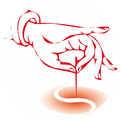“Inquiry is a method by which doctors purposefully ask patients or their companions to understand the condition of the illness. It is one of the fundamental methods of diagnosing diseases in Traditional Chinese Medicine (TCM). The Neijing has long recorded many specific contents of inquiry, such as in Suwen: Sanbu Jiuhou Lun, which states: ‘One must inquire about the onset of the illness and the current symptoms, and then palpate the pulse accordingly.’ In Suwen: Shu Wuguo Lun, it is also stated: ‘Anyone wishing to diagnose a disease must inquire about diet and living conditions,’ laying the foundation for inquiry in TCM. Subsequently, inquiry has been highly valued by physicians throughout history, continuously supplemented in long-term medical practice, leading to its gradual perfection. In the Ming Dynasty, Zhang Jiebin summarized inquiry into ten questions in Jingyue Quanshu: Shiwun Pian for clinical application. In the Qing Dynasty, Yu Jiayan also proposed a format for writing medical cases in Yuyi Cao, detailing general items of inquiry, current medical history, past medical history, and more, which closely resembles the content of modern TCM medical records.
The Significance and Importance of Inquiry
Inquiry is an important method for understanding the condition of the illness and occupies a significant position among the four diagnostic methods. Many aspects of a disease, such as its onset, development, changes, and treatment process, as well as the patient’s subjective symptoms, past medical history, lifestyle, and family history, can only be obtained through inquiry. The aforementioned information related to the disease serves as a reliable basis for the physician to analyze the condition and conduct pattern differentiation. Especially in the early stages of certain diseases, when the patient has not yet exhibited objective signs and only presents subjective symptoms, it is only through inquiry that the physician can grasp the clues of the disease and make a diagnosis. Furthermore, inquiry can provide a general scope for other diagnostic methods and help understand the patient’s mental state for timely guidance, which also aids in the diagnosis and treatment of the disease. Therefore, inquiry is one of the important methods for physicians to diagnose diseases.
As stated in Suwen: Zheng Si Shi Lun: ‘When diagnosing a disease, if one does not inquire about its onset, the concerns about dietary irregularities, excessive living habits, or toxic injuries, and does not clarify these before hastily palpating the pulse, how can one accurately diagnose the illness?’ This means that when diagnosing a disease, one should first inquire about the onset and causes of the disease; if this is not clearly understood, hasty pulse diagnosis will make it difficult to arrive at a correct diagnosis. Ming Dynasty physician Zhang Jingyue regarded inquiry as ‘the key to diagnosing diseases and the foremost task in clinical practice.’ Qing Dynasty physician Zhao Qingchu also stated in Cunzun Zhai Yihua Gao Xuj: ‘Pulse diagnosis is the last of the four diagnostic methods; observation, listening, and inquiry are more valuable. Among them, the inquiry is especially crucial for pattern differentiation.’ This fully illustrates the important role of inquiry in diagnosing diseases.
“Inquiry is a diagnostic method by which physicians obtain medical history data through systematic questioning of patients or related personnel, and make clinical judgments through comprehensive analysis. Inquiry is the primary means of collecting medical history. The completeness and accuracy of the medical history significantly impact the diagnosis and management of diseases; therefore, inquiry is a fundamental skill that every clinical physician must master. Most clues and evidence for solving patients’ diagnostic issues come from the data obtained during medical history collection.
The information obtained through inquiry is extremely important for understanding the occurrence and development of diseases, the treatment process, past health status, and previous illnesses, as well as for diagnosing the current disease. It also provides the most important basic data for subsequent physical examinations and various diagnostic tests. A physician with profound medical knowledge and rich clinical experience can often propose accurate diagnoses for certain patients through inquiry alone. Especially in certain diseases, or in the early stages of a disease, when the body is merely in a state of functional or pathophysiological changes without organic or morphological alterations, patients may still express certain special sensations earlier, such as dizziness, fatigue, loss of appetite, pain, insomnia, anxiety, and other symptoms. At this stage, physical examinations, laboratory tests, and even special examinations may yield no positive findings, yet the data obtained from inquiry can serve as an earlier basis for diagnosis. In fact, in clinical practice, a considerable number of disease diagnoses can be basically determined through inquiry alone, such as colds, bronchitis, angina pectoris, epilepsy, malaria, and biliary ascariasis. Conversely, neglecting inquiry inevitably leads to incomplete medical history data, insufficient and inaccurate understanding of the condition, often resulting in missed or misdiagnoses in clinical work. For cases that are complex and lack typical symptoms and signs, thorough and detailed inquiry becomes even more important.
Collecting medical history is the first step for physicians in treating patients, and its importance also lies in being the most crucial opportunity for doctor-patient communication and establishing a good doctor-patient relationship. Correct methods and good inquiry skills make patients feel the warmth and trust of the physician, instilling confidence in cooperating with the physician, which is also very important for diagnosing and treating diseases.”
Inquiry comes first in diagnosing diseases, seeking truth objectively; relying solely on pulse diagnosis, is it somewhat biased?

